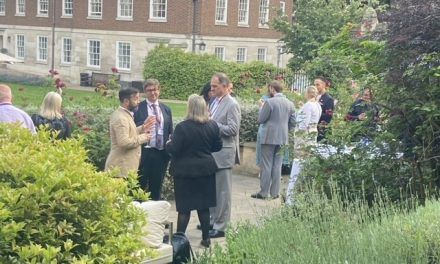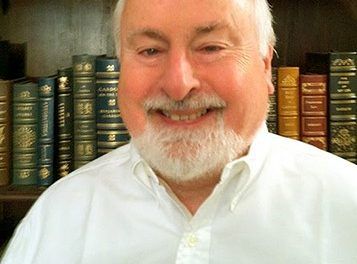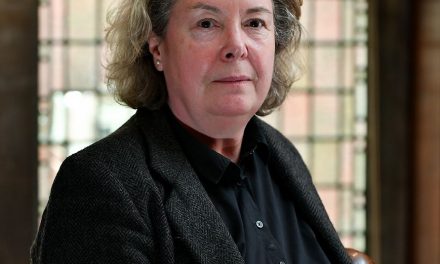ADDRESS OF MASTER CHRISTOPHER CLARKE AT THE SERVICE OF THANKSGIVING IN THE TEMPLE CHURCH ON WEDENSDAY 30 MARCH 2022 FOR THOSE WHO DIED DURING THE PANDEMIC
‘No man is an island entire of itself; every man is a piece of the continent, a part of the main; if a clod be washed away by the sea, Europe is the less, as well as if a promontory were, as well as if a manor of thy friends or of thine own were.
Any man’s death diminishes me, because I am involved in mankind.
And therefore never send to know for whom the bell tolls; it tolls for thee’.
I have quoted these well-known words of John Donne, one-time Reader of Divinity at Lincoln’s Inn, because over the last two years, while the bell may have been able to toll, the spread of Covid and the measures taken to close off normal life have meant that many have passed from us with a funeral attended by very few and with no memorial service or gathering possible; and with severe restrictions on our ability to communicate with the relatives of those who have died. But we can at last be here in this our Temple Church, this evening, to gather together and remember those whom we have lost.
Those who have gone from us are over 200 in number. Any mention of names by me could be thought inapposite, since for each person named another could equally well have been chosen, and all deserve equally to be remembered. Nevertheless, it appeared to me fitting to indicate the range of those from our community who have departed this mortal life.
Two had been members of the House of Lords and Supreme Court. The first is Donald Nicholls, a former Treasurer of Middle Temple, one of the most accomplished and most modest members of our highest tribunal ever. His death was sadly followed, all too shortly, by that of his widow Jennifer. The second is Brian Hutton, a former Chief Justice of Northern Ireland, who once topped the IRA’s most wanted list.
From the Court of Appeal we have lost Roy Beldam of Inner Temple, who once, with considerable fortitude, dealt with a litigant who brandished a gun at the Court until he said to her ‘Madam, justice cannot be dispensed at the barrel of a gun’, whereupon, fortunately, she fled; John Laws, a former Treasurer of Inner, whose passion for, and aptitude in respect of, administrative law and matters Greek was largely equal; and Andrew Leggatt, of Inner, a former Chairman of the Bar, Paul McCartney’s former counsel, a kind and humane man, whose dry, laconic and sometimes acerbic wit will long be remembered.
Amongst Honorary Benchers we have lost Robert Armstrong, the former Cabinet Secretary, whose grandfather was William Henry Draper, the Master of the Temple from 1919-1930; Jonathan Sachs, the former Chief Rabbi and Roger Scruton, the distinguished conservative philosopher.
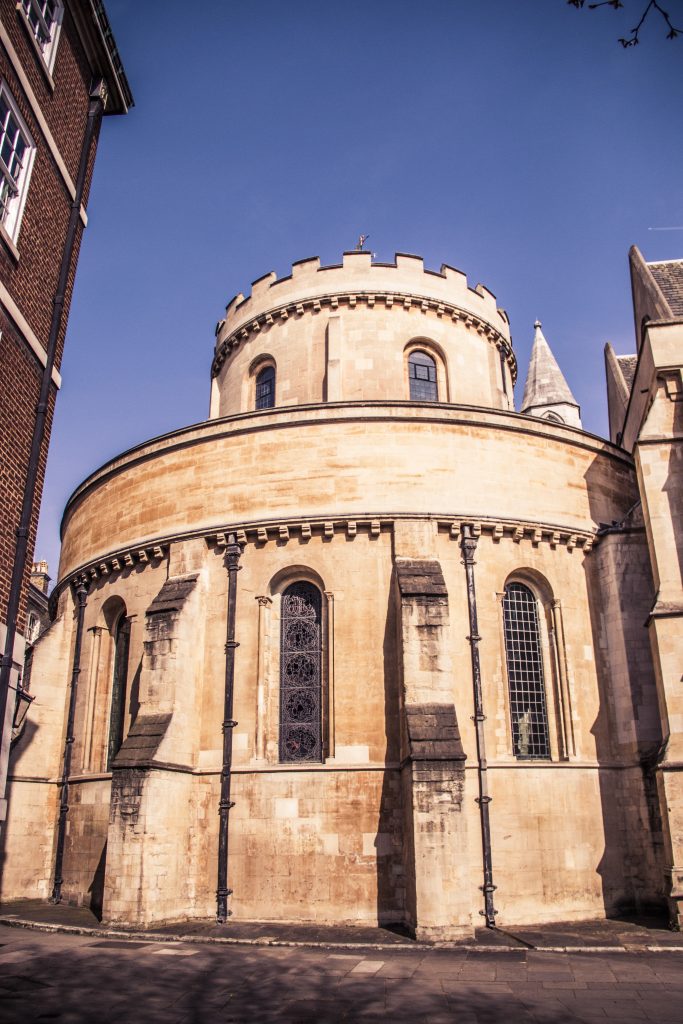
And from overseas, we have lost Sir Austin Ward, a former Chief Justice of Bermuda; once described as ‘A quiet man gifted with a sharp wit for any lawyer who was less than thoroughly prepared’; and Surinder Singh Ninja, an Indian legal visionary (who aged 12 moved to Huddersfield from the Punjab) but in 1975, after being unable to obtain a tenancy, returned to India where in one of his first cases, the judge found it difficult to decipher his Yorkshire accent, and where he became, in the end, a justice of the Indian Supreme Court.
From the High Court, we have lost Margaret Booth, a pioneer for women at the Bar (being only the tenth woman appointed as a QC) and in the judiciary (being only the third woman appointed as a puisne judge – at a mere 46) and an editor of Rayden on Divorce; Richard Curtis, a former presiding judge of the Wales and Chester circuit; William MacPherson of Cluny, a former Treasurer of Inner, who in the course of no more than a year sifted through a morass of material in the Stephen Lawrence inquiry and concluded that the police were institutionally racist; and Richard Plunder, whose grandparents perished in Theresienstadt, and who was a distinguished European lawyer, both as an academic and a practitioner.
From the Circuit Bench we have lost, inter alios, Brian Appleby, a brilliant advocate, one of the first silks not to move to London on becoming a QC, with the added distinction of having been Chairman of Nottingham Forest FC; Stuart Bridge, a first class academic and Yorkshireman and former Chairman of the Law Commission; Roderick Denyer, the former designated civil judge in Bristol, who on his first day as a pupil in chambers reportedly turned up dressed in a sharp Italian two piece suit, orange shirt and brown shoes, only to be told, in the supercilious humour of those times, that he ‘looked like a solicitor’; David Elfer, a Titan of the Western Circuit and for four years a judge at Southwark, whose career was cut very short by ill health; Alistair McCreath, a greatly admired judge and model judicial trainer who, after Birmingham and Worcester became the resident judge at Southwark, and successfully fought off the Court’s sale; John Mitchell, who only retired from the Bench two years ago, a great supporter of Middle Temple students and the 2021 Lent Reader, who sadly did not live to deliver his lecture; Mervyn Roberts, who was a Circuit judge, a member of the Criminal Injuries Compensation Board and of the Parole Board; Owen Stable, senior judge at Snaresbrook who percipiently held Robert Maxwell to be unfit to run a public company and laid claim to fame as Lord Bingham’s pupil master; John Weeks, a Chancery Circuit judge on the Western Circuit, who controversially described a very well-known pop singer as ‘devious, truculent and unreliable when his own interests were at stake’; and Margaret Wilby, a district judge who retired early to pursue an interest in archaeology and died tragically following a fall.
Amongst our barrister members we have lost Pat Edwards, whose last job was as Legal Director to the Office of Fair Trading, and who in retirement was a most active and hardworking Chair of the Scholarships and Prizes Sub-Committee of Middle of which she was, by her will, a most generous benefactor; Sibghat Kadri, of Inner, the first ever Queen’s Counsel of Pakistani and Muslim origin and a founder and former Chairman of what came to be called the Society of Black Lawyers. He was elected the first president of the Inner Temple Student Association, defeating John Laws, who nevertheless did well thereafter.
We have lost Bertrand de Speville, of Middle who came to England from Rhodesia, practised here and then became Solicitor General and Head of the Independent Commission against Corruption in HK until the handover, after which he founded an anti-corruption consultancy; George Pulman, of Middle, a practitioner as permanently jovial as he was accomplished, a diocesan Chancellor and a tireless supporter of law students; Eldred Tabachnik, of Inner, who qualified as an Advocate at the South African Bar, came to England and almost single handily created employment law as an area of practice in its own right. Others lost are Giles Wingate Saul, of Inner, one of the most admired members of the Northern Circuit and one of the founders of the Northern Circuit Commercial Bar Association; Richard Southwell, a former Treasurer of Inner and one time President of the Courts of Appeal of Jersey and Guernsey; and Johnny Veeder, of Inner, who developed a brilliant practice in international arbitration, oversaw with others the recreation of the London Court of International Arbitration, had a great sense of humour and was a master of spoofs.
Of those who have died several lived to a great age, far past the three score years and ten to which the psalmist refers as an ordinary life span. But some have left us far too soon, included among whom is Mark Cannon, of Middle, a specialist in professional liability, construction and insurance, and former Chairman of the Professional Negligence Bar Association [aged 62]; Robin Dicker of Middle, who enjoyed a meteoric rise to the top of his profession in his chosen fields of commercial, finance and insolvency and restructuring law, at the pinnacle of which he remained for years with seemingly Olympian ease [aged 60]; Edmund King, of Inner, a fantastically talented lawyer with a first in Jurisprudence from Baliol, a Kennedy scholar at Harvard and the top scholarship from Inner, who combined a brilliant legal mind with a fantastic sense of humour (aged 45). He was married to Louise Hutton, Brain Hutton’s daughter, herself a talented silk at the same chambers, Essex Court. We have lost Simon Kverndal, of Middle, an Englishman from the Norwegian shipping family, a great racquets player, a wine expert, and a fine shipping lawyer [aged 62]; Michael McParland, of Inner, a lawyer of great distinction and renowned scholarship in cross border disputes and conflict of laws and best known to the general public as a legal commentator on televised US trials for Sky News, BBC and ITV etc. [aged 61]; and others.
And we lost far, far too young Elizabeth McGahey, of Inner who practiced in family law in Cardiff; and Charlotte Wycherley, a new junior in 5 Essex Court who died tragically young in her mid-twenties.
From the non-lawyer part of the Temple community and those close to them, we have lost Stuart Collins, the nephew of Bobby Grier, one of Inner Temple’s porters; Stuart died as a result of injuries sustained while serving with the British Army in Afghanistan. We have lost two longstanding members of the congregation: Trever Dannatt, a great architect, the last surviving member of the group that built the Royal Festival Hall who died aged 101; and Roger Duff a gentleman who, in later years was severely stooped and whom many of the regular congregation would recognize.
We have lost Philip and Christine Deller, the parents of Roland Deller, the very new Chief Executive of the Temple Music Foundation; David Dorey, the brother of Greg Dorey, the Sub-treasurer of Inner; Wendy Grayson, the husband of Edward Grayson, the sports lawyer. Wendy lived in the same flat in MT for over 60 years. She was the cousin of Peter Taylor, the Chief Justice. Although Called to the Bar (one of the few women at the time) she never practised as a barrister. She was, however, for many years the Chief Editor of the All England Law Reports under her maiden name of Wendy Shockett; Paul Harrison, the head of Music at the City of London School; Stella Gallagher, whose son William looks after Inner Temple’s silver, and Jean Mulady the mother of John, a member of Inner Temple’s security staff.
I have referred to this list of people, saying a little something about them because to refer to these ones alone shows the enormous breadth of achievement and of contribution that members of our two Inns and of the Temple family make to the common weal. And it serves to remind us of the importance of community, and in particular a community such as ours, in an enterprise which is a force for good.
The Inns are of course peculiar institutions. Nobody starting from scratch would establish them as they are now. They are a combination of degree awarding institution, professional gateway, property owning company, Church owner and funder and quasi-Charity, established by the Royal Charter of James 1, renewed in 2008 by Her Present Majesty.
It is perhaps apposite that I should recall some of the words of the Charter. It begins with the recital:
Whereas our realm of England, having flourished mightily for so many ages in the arts of peace and war … is acknowledged with good reason to owe a great part of its happiness to the ancient laws proper to this realm …. And whereas the Inns of the Inner and Middle Temple, London, having long been among those foremost celebrated colleges of all Europe continually filled with persons studious and learned in the aforesaid laws, have for a long time been dedicated by the liberal bounty of our forebears, as Kings of England, to the use of those studying and professing the said laws, to which, as to the best seminaries of instruction and upbringing, a great many young persons of honourable background, excellently endowed in mind and body, have daily flocked from all parts of this realm, and from whom by reason of their highest merits many have been advanced, both to arduous positions in the state and in the administration of justice, wherein they have provided high examples of prudence and integrity, to the honour of the said profession, the advancement of this realm, and the no mean benefit of the whole commonwealth, as is to us abundantly manifest.
There then follow words granting the lands of Inner and Middle Temple in perpetuity in relation to which the Charter specified that:
We will and by these presents for us, our heirs and successors, do strictly command [that the Inns] shall serve for the accommodation and education of those studying and following the profession of the aforesaid laws, abiding in the same Inns, for all time to come.
It is of these two great bodies that those whom we now hold in our hearts chose to become members or to serve; and who contributed to the achievement of the good purposes for which they have ever existed.
As Donne reminds us, we are all the less by the loss of any single member of our community. But, as our opening anthem also said:
Justorum animae in manu Dei sunt et non tangent illos tormentum malitiae.
The souls of the righteous are in the hand of God. There shall no torment touch them.
Let us entrust them to His safekeeping. May they rest in peace. Amen.
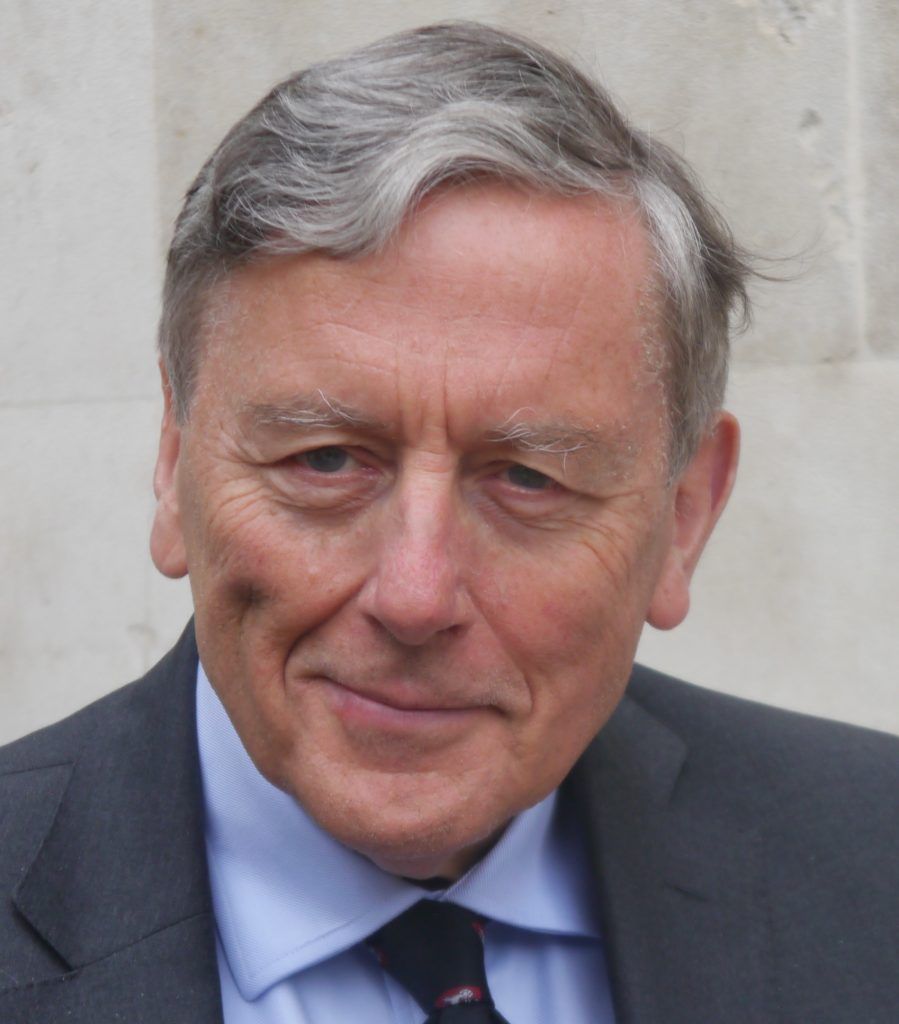
Master Christopher Clarke was Treasurer of the Inn in 2016. He is a past member of the Commercial Court, the Courts of Appeal of England & Wales, Jersey, and Guernsey and the Court for Ecclesiastical Causes Reserved. He is currently the President of the Court of Appeal of Bermuda. He is a holder of the Canterbury Cross.

